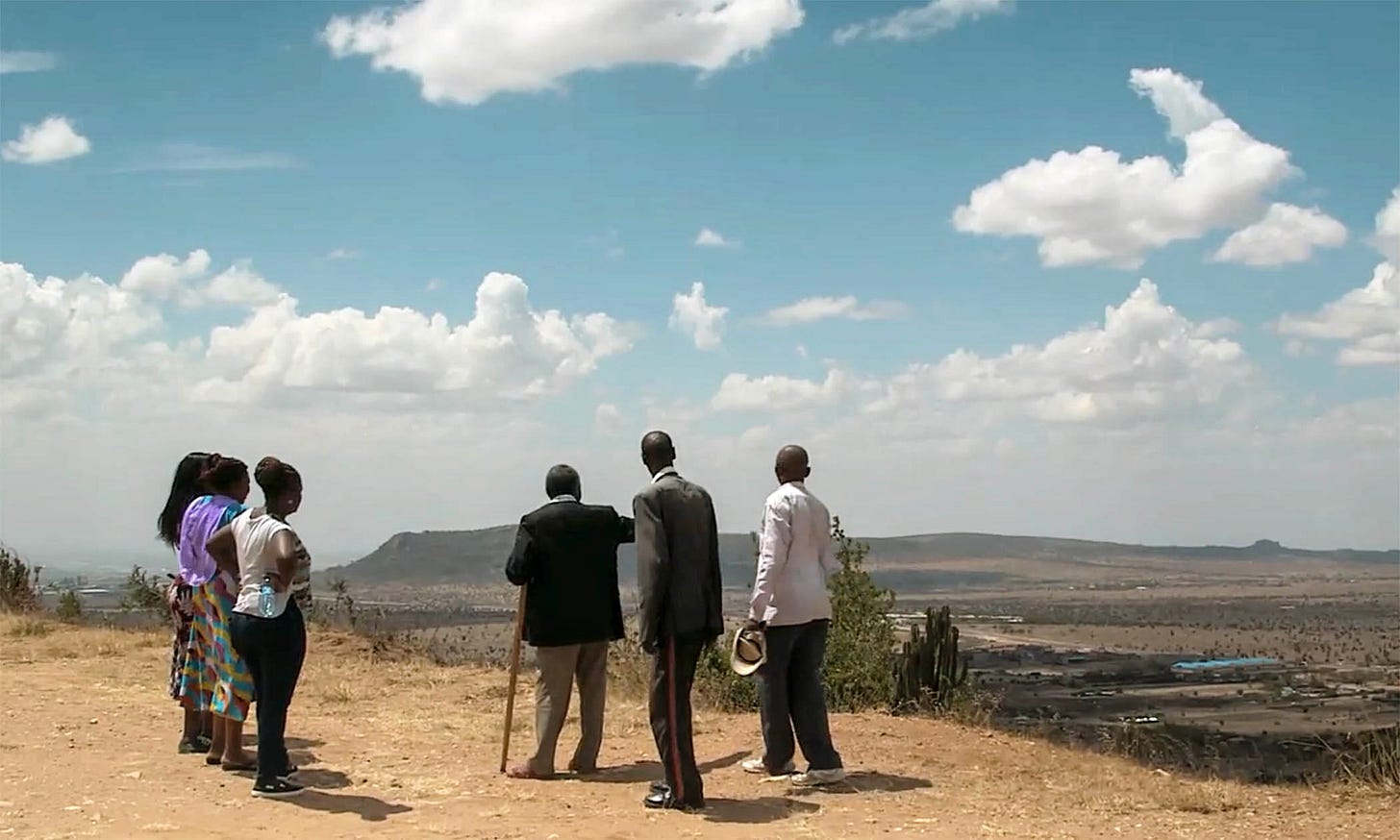Review: Digging up history’s skeletons
In the search for the body of a revered Mau Mau leader executed by the British in 1957, a new film puts Kenyans at the centre of their own history.
Wilfred Okiche
Wanjugu Kimathi, daughter of Dedan Kimathi, goes on a transformative journey searching for her father’s remains. Kimathi’s death in 1957 was one of the biggest blows to Kenya’s anti-colonial resistance movement. The British executed him and disposed of his body. But where? Kimathi’s late widow Mukami searched for his remains and passed down the decades-long struggle to her daughter Wanjugu.
To many Kenyans, the entire affair – the bitter hunt for and execution of the man who led the Kenya Land and Freedom Army, which waged the Mau Mau guerilla war of 1952 to 1960 – was as lost as Kimathi’s remains.
“I come from a family that had embraced a culture of silence regarding this part of our history, but also because it was banned,” film director Zippy Kimundu tells The Continent. “My family had people who were Mau Mau and people who were collaborators on the other side. But we didn’t talk about it.” The Mau Mau were branded a terrorist group and remained banned until 2003, when president Mwai Kibaki’s government lifted the ban.
To resurface this history, Kimundu teamed up Meena Nanji to make Our Land, Our Freedom. Nanji, a Los Angeles-based filmmaker, was born in Kenya to parents of Indian origin. She fondly recalls her childhood, which was interrupted when her family moved to England when she was nine. She remained fascinated by the independence movement and the political climate in Kenya. In 2012, she read Caroline Elkins’ Britain’s Gulag: The Brutal End of Empire in Kenya. The book’s detailed evidence of British concentration camps in colonial Kenya horrified Nanji.
“I had sworn never to do documentaries again, and was working on fiction and experimental films, but I knew I had to do this somehow,” she says.
Nanji sought out Kimundu. They clicked instantly and Kimundu joined the project. The rest is history unearthed in Our Land, Our Freedom, whose world premiere was last November at the International Documentary Festival Amsterdam. The filmmakers’ first meeting with Mukami “was supposed to be a research interview” but was so powerful it ended up in the film. Initially, Wanjugu’s role on the project was to make introductions to the freedom fighters she knew, and serve as a translator, but when she conducted one interview herself, the filmmakers realised she was carrying the conversation better than they ever could without her background or knowledge. Her role shifted to protagonist.
When the search for Kimathi’s remains stalls, Wanjugu starts down another pressing path: advocating for land reparations and resettlement for the surviving freedom fighters and their families, uniting feuding factions with the broader common goal. The airport customer service representative becomes an influential social justice activist with a growing list of political enemies among those who still benefit from Britain’s theft of the lands that the Mau Mau movement fought to take back.
Nanji and Kimundu want to work with education officials to have Our Land, Our Freedom added to both Kenyan and British curricula. They also want to advocate for a revision of the materials assigned for studying history in schools. Nanji stresses: “We must foreground the Kenyan version.”





